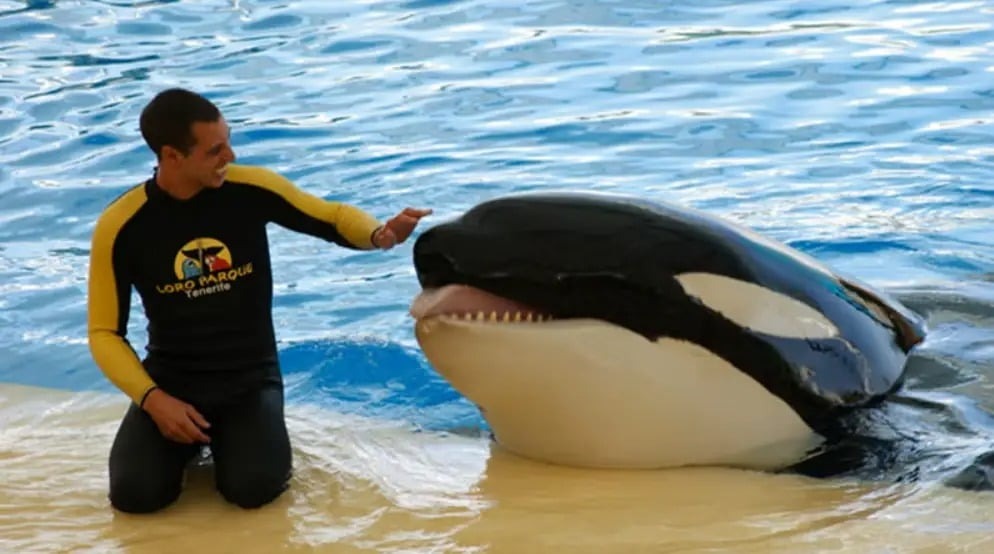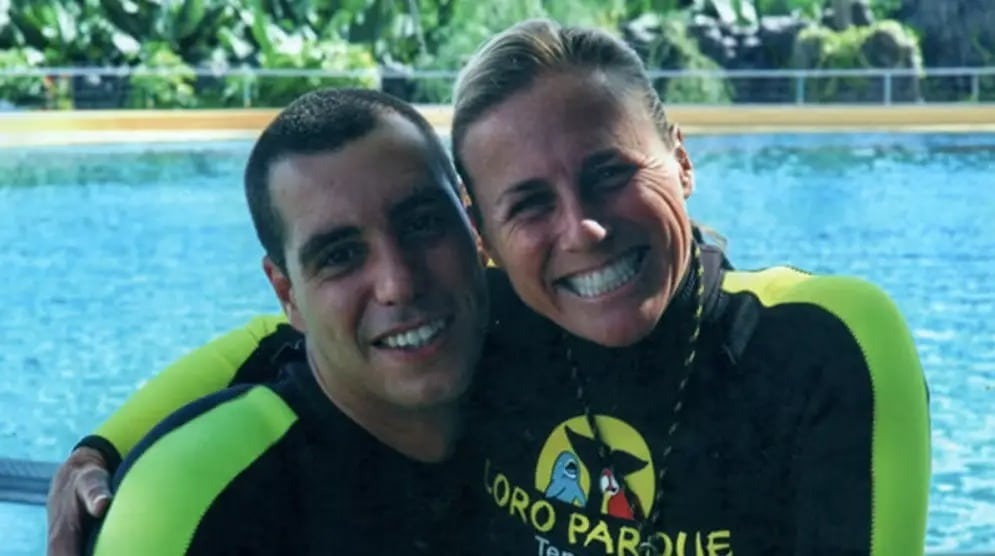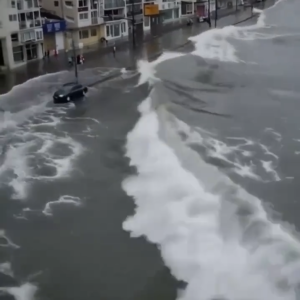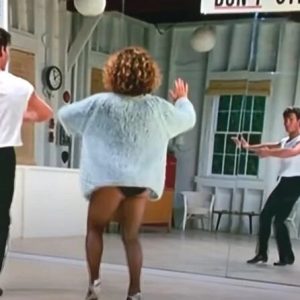A tragic incident stunned the marine animal world when 28-year-old orca trainer Alexis Martinez was killed by a killer whale during a training session at Loro Parque’s Orca Ocean in the Canary Islands. The fatal attack happened on December 24, 2009, during a rehearsal for a Christmas show—just two months before a similar tragedy claimed the life of SeaWorld trainer Dawn Brancheau in Florida.
Martinez had worked closely with orcas for years and was considered experienced and passionate. But in the weeks leading up to the attack, he reportedly expressed concern about changes in the animals’ behavior. According to his partner, Estefanía Luis Rodriguez, the whales had been acting more aggressive and unpredictable.

The orca involved in the attack was Keto, a 6,600-pound male born in captivity at a SeaWorld park in 1995. At the time, Keto was on loan to Loro Parque from SeaWorld and had never lived in the wild.
During a routine trick called the “stand-on spy hop”—where the trainer stands on the whale’s back as it rises out of the water—Keto suddenly broke from the plan. Witnesses said the whale blocked Martinez’s path and, when the trainer tried to swim to safety, Keto ignored commands and dragged him underwater using the tip of his snout.

What followed was a violent episode. Keto reportedly played roughly with Martinez’s body, and despite frantic efforts from other trainers to intervene, the attack proved fatal. Martinez sustained severe internal injuries, including organ damage, compression fractures, and bite wounds. The official autopsy confirmed he died from multiple traumatic injuries caused by the orca.
Following the incident, SeaWorld suspended all in-water interactions with orcas at its parks.
Martinez’s death reignited a fierce debate about the ethics and safety of keeping killer whales in captivity. Many began to question whether the risks of training these powerful animals in confined environments are worth the cost—both for the animals and the humans who care for them.
To this day, Alexis Martinez is remembered not only as a skilled trainer but as a symbol of the ongoing controversy surrounding marine parks, animal welfare, and the future of orca captivity.





